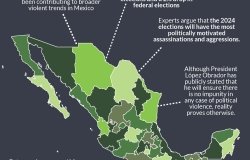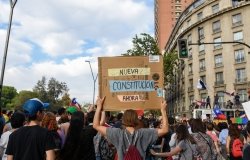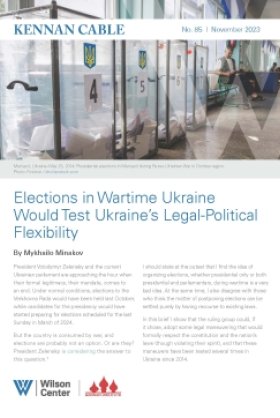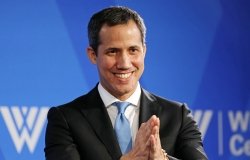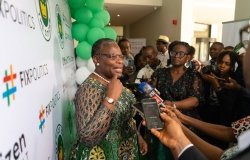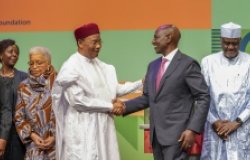Kerry: U.S. to forward $250M in aid to Egypt
On March 3, Secretary of State John Kerry released $250 million in aid to Egypt. Kerry made the announcement after President Mohamed Morsi pledged to implement painful economic reforms needed to secure an International Monetary Fund loan. Kerry discussed ways the United States can support Egypt’s economy and democratic transition during his two-day visit to Cairo—his first visit to an Arab capital since taking office.
On March 3, Secretary of State John Kerry released $250 million in aid to Egypt. Kerry made the announcement after President Mohamed Morsi pledged to implement painful economic reforms needed to secure an International Monetary Fund loan.
Kerry discussed ways the United States can support Egypt’s economy and democratic transition during his two-day visit to Cairo—his first visit to an Arab capital since taking office. “It is paramount, essential, urgent that the Egyptian economy get stronger,” Kerry told Egyptian business leaders on March 2.
The secretary emphasized that the United States will not interfere in Egyptian politics. Kerry also urged the government and opposition to compromise on economic and political reforms. “A vibrant democracy stimulates business, it supports a vibrant NGO sector, it encourages full political participation, and universal freedoms, and respect for the rights of women and for people of all faiths,” he said in a joint statement with Foreign Minister Mohamed Amr.
Kerry began his nine-nation tour through Europe and the Middle East on February 24. Egypt was the sixth stop on his first trip abroad as secretary of state. Kerry is scheduled to next visit Saudi Arabia, the United Arab Emirates and Qatar. The following are excerpts from his remarks on Egypt.
Joint Statement with Egyptian Foreign Minister Mohamed Amr
Cairo, Egypt on March 2, 2013
… I make it particularly clear now on behalf of President Obama and the American people that we come here as friends for the Egyptian people, not for one government or one person or one party or ideology, but for the Egyptian people.
The Foreign Minister and I have just had a very constructive first meeting in which we have discussed a number of the issues of importance: Syria, the Mid-East peace process, and we agreed to continue those discussions over dinner and other topics. And we will certainly discuss in some depth how the United States can continue to help the Egyptian people achieve their aspirations for democracy and for opportunity. As your long-time friends and partners, the American people support Egypt’s political and economic success and want to help work for that success.
And I emphasize again as strongly as I can, we’re not here to interfere. I’m here to listen. We’re not here to urge anybody to take one particular action or another. Though we have a point of view, and certainly I will express that. But what we support is democracy and the people and the nation of Egypt. And we look forward to working with listening to all of the Egyptian people as we work towards their path, what they choose to do to move forward to economic strength, to a vibrant democracy, and to a regional peace and security.
We do believe that in this moment of serious economic challenge, that it’s important for the Egyptian people to come together around the economic choices and to find some common ground in making those choices. It is important, even urgent, that the Egyptian economy gets stronger and that people have jobs and have opportunity and that the energy of this country can be focused on a more prosperous future.
So on behalf of President Obama and the American people, I’m here to listen and to better understand how we can help, because the health and strength and the future of Egypt is something that America cares deeply about. And when I visit with President Morsy tomorrow, I’ll be speaking with him about the very specific ways in which we would like to be able to help – more economic assistance, support for free enterprise and small business, growing Egypt’s exports to the United States, and investing in Egypt’s young people through education. And I say to my friend Mohamed, who I’ve gotten to know pretty well, we would of course only do these things in the consultation and in the conjunction with the decisions of the government, whichever government it is.
I was pleased to meet today with a cross-section of political and business leaders, and tomorrow I will meet with representatives of nongovernmental organizations. And today, I listened very carefully to the extraordinary passion and commitment of some of the opposition and their concerns about democracy, human rights – all values that we share in the United States. Each of the groups I talked about – business leaders, opposition, different political personalities, and the nongovernmental organizations – all of them, together, are vitally important to the health and strength of the democratic system. A vibrant democracy stimulates business, it supports a vibrant NGO sector, it encourages full political participation, and universal freedoms, and respect for the rights of women and for people of all faiths.
I listened carefully to their views about how to strengthen Egypt’s democracy, its economy, and its security, and I conveyed to them a very simple message: The best way to ensure human rights and strong political checks and balances in any democracy in Egypt, just like in the United States, is through the broadest possible political and economic participation.
There are many ways to demonstrate that activity. You can do it in protest or you can do it in participating, they’re all part of the mosaic of democracy. But we believe that being active, engaging in peaceful participation is essential to building strong communities and a healthy democracy. And we believe that it is vital to protect and to advance the universal rights that are in Egypt’s constitution: freedom of speech, freedom of religion, freedom of association, and equal rights and protections under the law for all Egyptians regardless of their gender, their faith, their ethnicity, or their political affiliation.
And I say there with both – I say with both humility and with a great deal of respect, that getting there requires a genuine give and take among Egypt’s political leaders and civil society groups, just as we are continuing to struggle with that in our own country. There must be a willingness on all sides to make meaningful compromises on the issues that matter most to all of the Egyptian people. You have upcoming elections and we are very pleased that the Egyptian Government is committed to welcoming Egyptian and international monitors to guarantee the transparency, accountability, and fairness of that election.
And finally, I want to thank the Minister, I want to thank Egypt and its leaders for being valuable partners in the pursuit of peace in this region. I appreciate enormously, and I want to share with you President Obama’s attitude for the role that President Morsy and Foreign Minister Amr played in reaching the Gaza ceasefire and their commitment to ensuring that it is honored. And we are very grateful for Egypt’s willingness to host the Syrian opposition as well as many of those people who are fleeing the violence and the oppression.
So the road ahead is long, there are tough choices to be made, but what is clear is we are confident that if all Egyptians stay focused on achieving the economic and the political opportunity that your people deserve and demand, this great nation will have the promising future that it deserves. Shokran. Thank you.
Click here for the full statement.
Statement on U.S. Support for the Egyptian People
Washington, D.C. on March 3, 2013
Over the past couple of days in Egypt, I have listened to a broad cross-section of political leaders, business leaders and representatives of non-governmental organizations. In all of these conversations, we have discussed the many real and daunting challenges Egypt faces. The people I met shared their deep concern about the political course of their country, the need to strengthen human rights protections, justice and the rule of law, and their fundamental anxiety about the economic future of Egypt.
I also had the opportunity to talk through these same issues with President Morsy in a very candid and constructive manner. It is clear that more hard work and compromise will be required to restore unity, political stability and economic health to Egypt. The upcoming parliamentary elections are a particularly critical step in Egypt’s democratic transition.
We spoke in depth about the need to ensure they are free, fair and transparent. We also discussed the need for reform in the police sector, protection for non-governmental organizations, and the importance of advancing the rights and freedoms of all Egyptians under the law – men and women, and people of all faiths.
In all my meetings, I conveyed a simple but serious message: The brave Egyptians who stood vigil in Tahrir Square did not risk their lives to see that opportunity for a brighter future squandered. The Egyptian people must come together to address their economic challenge. I encouraged President Morsy to implement the homegrown reforms that will help his country secure an IMF agreement, put Egypt on the path to establishing a firm economic foundation and allow it to chart its own course. He agreed and said that he plans to move quickly to do so.
In May 2011, President Obama pledged $1 billion in U.S. support for Egypt’s democratic revolution. This commitment reflected our profound support for and interest in Egypt’s future as a democracy driven by strong businesses, vibrant non-governmental organizations, full political participation and universal freedoms. The path to that future has clearly been difficult and much work remains.
The United States is committed to providing direct support to key engines of democratic change in Egypt, including Egypt’s entrepreneurs and its young people. So today we are launching the Egyptian-American Enterprise Fund, with an initial installment of $60 million in U.S. government capital now, rising to $300 million in the coming years as we work with our Congress on funding this and other programs.
We are also modifying our Qualifying Industrial Zones program in order to help increase Egypt’s exports to the United States. By allowing exports from additional Egyptian companies in these zones to come into the United States duty-free, we will stimulate growth, deepen our partnership, and help Egypt add thousands of jobs.
We will make investments as well in Egypt’s young people by funding a higher education initiative to help students, especially women, earn undergraduate and graduate degrees in science, technology, engineering and business.
And in light of Egypt's extreme needs and President Morsy’s assurance that he plans to complete the IMF process, today I advised him the United States will now provide the first $190 million of our pledged $450 million in budget support funds in a good-faith effort to spur reform and help the Egyptian people at this difficult time.
The United States can and wants to do more. Reaching an agreement with the IMF will require further effort on the part of the Egyptian government and broad support for reform by all Egyptians. When Egypt takes the difficult steps to strengthen its economy and build political unity and justice, we will work with our Congress at home on additional support. These steps will also unlock much-needed private-sector investment and broader financial assistance.
The American people want to see the political and economic success of our long-time partners and friends in Egypt. We look forward to continuing to work closely with all Egyptians as they define their own path to economic strength, a working democracy, and regional peace and security.
Click here for the full statement.
Remarks at a Stakeout
Cairo, Egypt on March 2, 2013
QUESTION: (In progress) heard his conversation with the opposition members. Did you hear anything from them that would suggest that they’re going to renounce their boycott of the election and actually take part?
SECRETARY KERRY: No, I heard very passionate people who are deeply committed to Egypt and to their version of the democracy that they fought for in their revolution. And I completely understand that. I wanted to hear from them. I explored their strategy and thoughts.
They’re deeply committed to human rights, to democracy, to freedom of expression, and to a real political process in which they feel they have a voice. America supports all of those things. And so listening to them was really important. There was a divergence of views in terms of the adamancy, but they all shared a sense that they needed to be more part of the process, more included, and they recognized the economic challenge, but they believe there’s also a need to fill the promise of democracy. And so do we. We believe that too.
So it informs me; I had a very strong meeting with the business community. They feel that the political system needs to move forward. So all of it has been very instructive, and I look forward to now meeting with the Foreign Minister, and tomorrow with President Morsy and having a good and candid conversation about these kinds of issues. Thanks all, appreciate it.
Remarks at Top of Roundtable Discussion with Business Leaders
Cairo, Egypt on March 2, 2013
SECRETARY KERRY: I apologize to everybody for being detained, but I had a very, very spirited, as you can imagine, conversation with members of the opposition, and it was really valuable – very, very valuable. And I’m very grateful to them for taking the time to come and share thoughts. It was really a conversation – we could have gone on for a couple of more hours, and I wish I’d had the time actually to do that because I thought it was very productive.
But I particularly am glad to be back here in Cairo and back here with some of you I met previously and others for the first time. But this is my first trip to Cairo as Secretary of State, obviously, and a lot of things have been happening in the course of the last year, so I wanted to have a chance to be able to talk with you a little bit about the economic challenge that Egypt is facing.
We’ve been a longtime friend and partner, and the American people support Egypt and want its political and economic success. And we really look forward to being able to work with Egypt as it continues to play a very critical role in the region’s economy and in its security issues. We come here – I come here – on behalf of President Obama, committed not to any party, not to any one person, not to any specific political point of view, but filled with the commitment that Americans have to democracy, to a robust commitment to our values – to human rights, to freedom of expression, to tolerance.
And these are things that, historically, the strong civil society of Egypt has cared about. We believe it’s very important for the Egyptian people to come together around those values, but also to come together to meet the economic challenge at this particular moment. It is paramount, essential, urgent that the Egyptian economy get stronger, that it get back on its feet. And it’s very clear that there’s a circle of connections in how that can happen. To attract capital, to bring money back here that will invest, to give business the confidence to be able to move forward, there has to be a sense of security and there has to be a sense of economic and political viability.
And so we understand that. You have to get people back to work, and the energy of this country needs to hopefully be able to move from the streets to enterprise and to work and to daily life and to building the strength of that civil society. And so I’m here primarily to listen to you and you tell me what you think you need to do that. But it’s clear to us that the IMF arrangement needs to be reached, that we need to give the marketplace the confidence. And that very capable and entrepreneurial Egyptian Diaspora that is currently in many parts of the world with its capital, needs to feel comfortable that it could come back here and that there’s a viability in going forward.
So when I speak with President Morsy tomorrow, I will be speaking with him about the very specific ways that we, the United States, that President Obama, would like to see us engage, including economic assistance, support for private businesses, growing Egypt’s exports to the United States, investing in Egypt’s people through education. There are some very specific things that we need to do, and all of them we would only do in consultation with the government of this country. These are not things that we would do on our own without a government desiring it or wanting it or being part of it, obviously. But they are only things that we can do with the same confidence that you make your choices, knowing that Egypt is going to make the right fundamental economic decisions with respect to the IMF and that it stands ready to provide the foundation for sustainable and inclusive growth.
So we’re working on a number of initiatives towards supporting greater trade and business development. Last September, we brought more than 100 representatives from American businesses to Cairo in order to explore these very opportunities. We’re certainly ready to try to do that and try to do more. And I spoke in the last days with Prime Minister Qandil, with President Hollande of France, with Chancellor Angela Merkel, yesterday with Prime Minister Erdogan of Turkey – all of them are prepared to be helpful, but all of them believe that Egypt needs to make some fundamental economic choices.
The sad thing is that shortly after the visit of those 100 businesses last year, there was a problem in terms of the violence with respect to the Embassy and the community and it deterred people from following up on that. So a clear message: The United States is committed to helping Egypt become an economically successful, democratic nation. And I know that most of you here are – or all of you here are too. And I look forward for hearing from you your thoughts about the ways in which that can happen rapidly and what we can do most effectively to try to help make it happen. And I thank for listening to those opening comments.
On that note, I invite any members of the chamber or any of the businesses here to speak up. We’re going to – sorry – wait for the press. Apologize. Thank you all very much. Appreciate your being here.
Related Program

The Islamists
Learn more about Hamas and how it relates to similarly aligned organizations throughout the region. Read more
